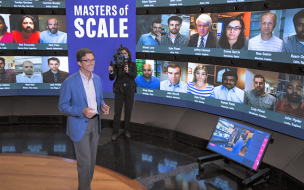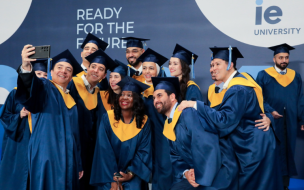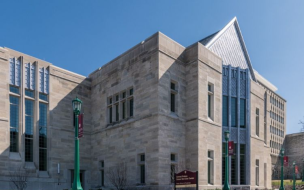Tech to revolutionize the automobile and healthcare sectors and the “internet of things” promise to dominate this year’s International Consumer Electronics Show – but a cadre of companies focusing on innovation in education will also pitch to investors in Las Vegas.
Every January these disruptors have flocked to the city of sin to show off the digital products which they plan to sell to consumers or in the case of education, to universities and corporates that educate internally. Many of these gadgets, devices and software are poised to revolutionize learning. For business education, the change is already underway.
The world’s leading MBA programs have had to adapt. Many launched online programs that are hosted by tech companies such as Coursera and FutureLearn. Others teach executives from a distance with blended formats, but both cater to those who can no longer afford to take years out of work – a growing market.
CES has evolved from a collection of consumer electronics companies to include execs leading businesses in the automotive and media markets, while with a nod toward education many of these delegates are trying to sell smartphones, tablets and PCs to the world’s top educators.
This year’s program includes special fridge conferences. For education tech the track is TransformingEDU, a reformed conference and exhibition that plans to explore how the fast pace of technology is fundamentally reinventing the way we learn.
“With the escalating costs of education, the mandate for better skilled workers, the need to close the skills gap [and] growing teacher-to-student ratios... educational institutions are primed for disruption,” said Kerry Goldstein, the conference’s producer.
Technologists, industry leaders, entrepreneurs and educators will gather for the one-day conference and four-day exhibition to witness new technologies that promise to improve not just educator outcomes but also collaboration with business and student performance.
The show floor will be packed with demonstrations of the latest web-based solutions and personalized learning tools. Innovation will take the form of digital text books, smart glasses and smart watches, and even brain engagement headbands.
Many top business schools have already adopted some of this technology. There has been a rise in merging medical devices with business practices, for instance at MIT Sloan School of Management in the US and Warwick Business School in the UK.
According to market research group IDC, more than four million PCs and tablets were sold to US high schools and colleges in the third quarter of 2014, while apps are also gaining ground in business education.
UNSW Business School in Australia plans to roll out digital course material and allocate Apple iPads to new students throughout January, allowing MBAs to create e-portfolios.
Hult International Business School and Ashridge Business School in the UK have all given students iPads that come preloaded with case studies and textbooks. In the US, Georgia’s Robinson College of Business, the Mendoza College of Business and Virginia’s Darden School of Business have taken similar steps towards a digital future.
Robin Raskin, founder of Living in Digital Times, the organization which runs the conference, said that the newest products and services are designed to give students and educators a “cutting edge”.
At CES a host of visionaries and thought leaders will also talk about the latest technology trends, many of which are affecting business learning. Rob Nail, CEO of Silicon Valley’s Singularity University, will explore how several key areas of technology like artificial intelligence, data analytics and neuroscience will impact education in the future.
Anant Agarwal, president of learning tech group edX, will explain how Moocs – massive open online courses – are redefining learning for the next generation of students.
A host of high-ranking business schools already run Moocs to draw students into their MBA programs. This includes Europe’s HEC Paris, IE Business School and Henley Business School, as well as the elites of North America which have pioneered the concept.
Most educators do not feel that Moocs or indeed education tech poses a threat to their postgraduate programs. But this year’s CES will no doubt provide a glimpse into business education’s future – a sector already being shaped by digital disruption.
John Shields, deputy dean at the University of Sydney Business School, said: “We are moving further the down the blended learning road, but are not distance providers per se.”
RECAPTHA :
a8
90
6d
0f








